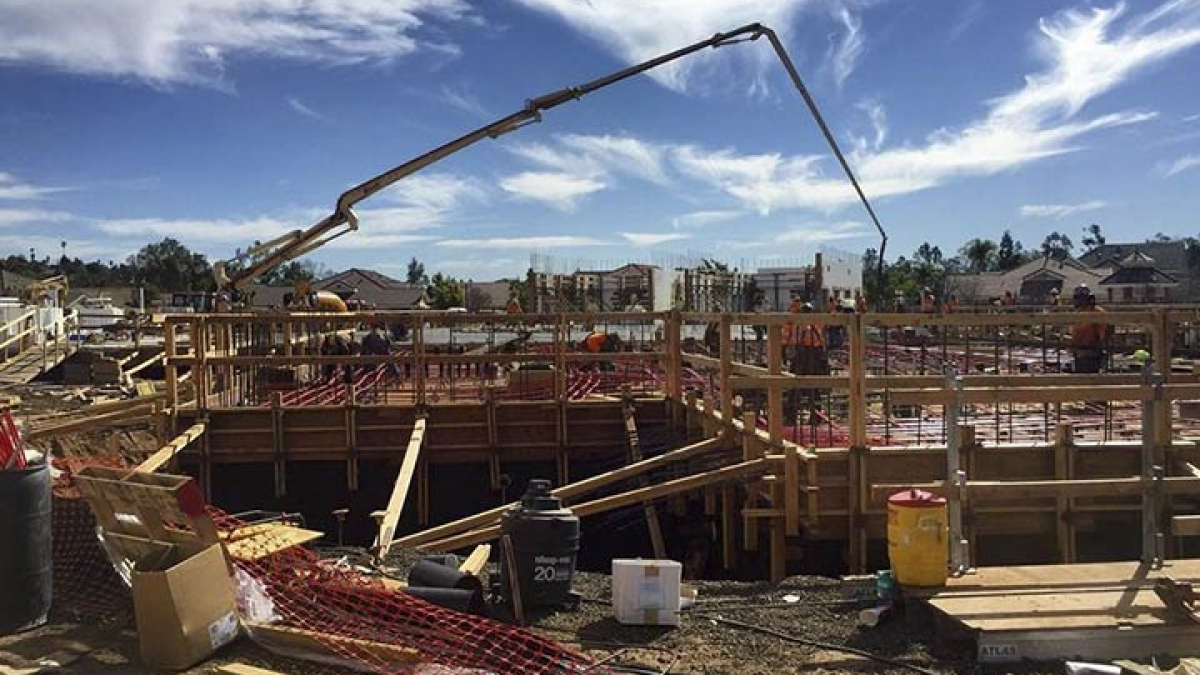This blog posts goes out to all those in the building industry who have to occasionally visit a job site but maybe it’s not a part of their everyday function. Some examples would be, architects, engineers, suppliers of building materials, purchasing agents/managers, interior designers and the list can continue well beyond that. Our industry has an incredible number of people and companies involved with bringing a project from concept to reality. I’ve always had a great deal of admiration (and maybe even a little bit of envy) for those who spend the bulk of their career on a job site either doing the hands on work, or supervising those who do, after spending years learning and refining their own skills.
The environment of a job site however, can be intimidating for some. I have known many individuals throughout my career who will avoid job sites as much as possible. I have seen many careers be negatively affected by this lack of interest or at times, outright refusal to visit a job site. Personally, I’ve never really felt that way. I always embraced the opportunity and took advantage of the experience to develop strong relationships with people who could teach me something new and maybe who I could find a way to help in some way in return. Over the course of the last 12 or so years, I have made a few observations that I thought could be helpful to share.
- . Know where you are going: The last thing a superintendent wants to see is some unknown character walking around aimlessly on site. The first thing you need to do, is find the Super’s trailer, introduce yourself and get permission to proceed with the work you showed up to do. Even if you had made an appointment with him/her to be there, you still need to check in before doing any work. Things can change daily on a job site and you want to show respect for the ones responsible for managing it by making sure they are still ok with you performing your work at that moment.
- Come Prepared: This is kind of a follow up to item 1 but needs to be mentioned because of how often this rule is ignored. Time on a job site spent with you is time taken away from something or someone else. Don’t waste it by being unprepared. For instance…need construction plan sets to reference? Bring them! Have specific questions to ask? Have them written down ahead of time. Most importantly, communicate with your contact on site well in advance of your arrival asking them to inform you of all items that they will want to discuss/address with you while you are there and vice versa. This will give you and them the ability to prepare properly.
- Dress Appropriately: Proper footwear for the conditions on site is a must. I find it a good practice to just leave a spare pair of work boots in my car so I can have them handy in a moment’s notice. Be sure to adhere to all additional safety gear requirements. Some of the more common items to have handy are, hard hat, safety vest, ear plugs and protective eye wear. Some sites will have additional requirements so, another good reason to communicate with your contact on site prior to your arrival. I would also note that if you can be of better service to the site teams by getting your hands dirty, do it! If that means you wear a pair of jeans instead of dress pants during your visit so that you have more flexibility and can get down on the ground or up in to the attic space without ruining your freshly pressed suit pants, do it!
- Display Confidence (not arrogance): These 4 items really tie in together as they are all focused around the importance of time. A Superintendent is not going to be very eager to devote his/her time to someone who isn’t confident they can do their job effectively. Displaying confidence will help put people at ease, giving them the reassurance that you will be able to do your job right and do it quickly so they can continue on forward with the rest of the tasks ahead of them. A word of caution however, do not allow yourself to cross the line from confidence to arrogance. Nor, similarly display a false sense of confidence by pretending to know things you really have little background in. The truth is that a Superintendent has to know everything that is going on at their site. From permits, to interior design, building codes, schedules, budgets, all the various construction trades and so on. It’s likely that they are more knowledgeable than you when it comes to the field application and overall impact of what your portion of the project entails. If you pretend to know something when you don’t, two things can happen and they are both pretty bad. One, they look you in the eye and call you out and now you’ve lost their trust and respect. Or two, they move forward based on a recommendation or comment you made that was false resulting in lost time from the schedule and perhaps even lost profits from the project budget.
Landon Boucher | Innovative Structural Engineering | www.ISEengineers.com

